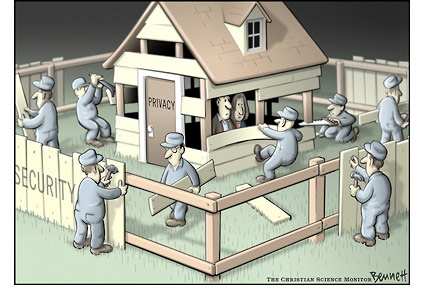These are my favorite talks from the 31C3 so far. 😀
Tag: Insights
Security Fence
Dracula Untold, For A Good Reason
I like good stories and came across Dracula Untold. I didn’t like it very much. Maybe it’s because of my heightened sensitivity for anti-islamic racism. Or maybe it’s because the main theme of the movie seems to be that: it’s OK to join the forces of evil as long as your intention is to protect your family and your country … if that makes sense to you, it doesn’t to me.
They try to accomplish this by twisting the historic context both with regards to the time and place, the persons involved and in the loyalties they had. Also they try to convey that Evil is not something despicable in itself, but a tool to be used by the powers in charge.
I assume you’ve seen the movies and can relate tho following facts to the plot and the characters.
My first pain point are the movie’s extremely distorted “Vlad” and “Mehmet” figures. They are created from greatly mixing Vlad II …
- actually ruling in 1442
- but Wallachia, not Transilvania
- vested into the Order of the Dragon
- “made a treaty with the Ottomans insuring that he would give them annual tribute, as well as sending Wallachian boys to them yearly to be trained for service in their armies“
- left his two sons Vlad and Radu with the Ottomans
… and Vlad III.
- was called the “Prince of Wallachia”
- who was later called the “Impaler”
- grew up as a political captive under the Ottomans (together with his brother Radu)
- Radu had a friendship with Mehmet II, not Vlad
- had a personal hatred for Radu and Mehmet
- known for The Night Attack
- he is often characterized as a tyrant who took sadistic pleasure in torturing and killing his enemies
And by greatly mixing Murad II …
- actually ruling in 1442
- tried to establish Ottoman-friendly rulers in Wallachia
… and Mehmet II.
- actually conquered Wallachia, but 20 years later
- known for the Conquest of Constantinople
My second and more general pain point are the movie’s morals which are kind of strange to say the least. :/ Among those seem to be:
- pacting with the devil is OK, as long as it’s against Muslims
- choosing to become a monster is alright, as long as you can protect your family and your country
- you can do whatever you like to your enemies (especially using torture or excessively cruel ways of killing), as long as you’re good-looking
- you can both be a pious Christian and a henchman of the Devil
- being “the son of the devil” is a source of pride
- revenge is good
- prominent characters in western literature must be made to fight Muslims
- Muslims must be defeated, even if you have rewrite history
I find this extremely troubling. o_O
Was man von Pegida halten soll
Ich glaube Herr Theisen trifft es ganz gut. 😀

Trotzdem ist “ganze Ding” sehr eigenartig. :/
Der französische Redner auf der Bühne kann sich nicht vorstellen “dass unter uns Rassisten sind”, während ein Chorleiter aus Würzburg alle Muslime erschießen will. Solche Widersprüche fallen bei Pegida nicht auf. Da weht die Fahne der rechtsextremen “German Defense League” friedlich unweit der israelischen im Dresdner Abendwind. Da ist quer durch den Wutbürgerkatalog für jeden etwas dabei zum “Jawoll”-Schreien – auch das Gegenteil. Hauptsache, irgendwas ist schlecht und jemand anderes hat Schuld.
— Telepolis
Aber eins ist klar, Deutschland hat ein massives Rassismussproblem!
Und für alle, denen das alles zu viel Text ist, gibt es istdasabendlandschonislamisiert.de. 😀
JavaScript History as Seen From 2035
Gary Bernhardt presents a thought-provoking history of JavaScript as seen from 2035.
His arguments are that
- With asm.js JavaScript VMs ran code with 50% of native speed (even in 2013)
- Anything that can be compiled can be compiled into asm.js
- Asm.js has basically become the universal runtime
So by further moving the JavaScript VM into the kernel we save ourselves the overhead of hardware process isolation as the VM does this any way.
All this lead to interesting consequences
- Nobody uses binaries any more, everything is asm.js
- The windowing systems of old have been ported to the DOM
- Deployments are as simple as a push
- JavaScript (as a language) is effectively dead
- Overall developer happiness has increased
:’D
No, You Go First
Bruce Schneier talks about how security companies sat on knowledge and research data about military-grade Regin malware for at least six years. They only decided to share their knowledge because the Intercept was about to publish an article about it. Their arguments for why they withheld their knowledge until now range from “our customers asked us not to disclose what had been found in their networks” to “we didn’t want to interfere with NSA/GHCQ operations”. :/ It’s safe to say that they sit on a bunch more.
Privacy Consequences of the SPE Hack
Bruce Schneier in his comments on the recent Sony Hack cites a Gizmondo article that sums it up very well why privacy is important to everyone even for mundane everyday stuff we do on the internet:
These are people who did nothing wrong. They didn’t click on phishing links, or use dumb passwords (or even if they did, they didn’t cause this). They just showed up. They sent the same banal workplace emails you send every day, some personal, some not, some thoughtful, some dumb. Even if they didn’t have the expectation of full privacy, at most they may have assumed that an IT creeper might flip through their inbox, or that it was being crunched in an NSA server somewhere. For better or worse, we’ve become inured to small, anonymous violations. What happened to Sony Pictures employees, though, is public. And it is total.
And in Bruce’s words:
These people didn’t have anything to hide. They aren’t public figures. Their details aren’t going to be news anywhere in the world. But their privacy has been violated, and there are literally thousands of personal tragedies unfolding right now as these people deal with their friends and relatives who have searched and reads this stuff.
Edja Snodow
Die Geschichten um diesen Edja Snodow sind wie das Spiegelbild einer Welt, die man nicht haben will.
https://twitter.com/riyadpr/status/543043457766653952
Ruby Monsters
Very entertaining talk about some of Ruby‘s quirks. 😀
Data protection via company policy is broken
Short reminder, it’s effectively only company policy that’s protecting your data’s privacy in corporate hands.
Update:
